We had the opportunity to host many events for Boston University students and faculty, as well as the wider community, during the 2024-25 academic year. Learn more about our past events below.
FALL EVENTS
9/11/24: Welcome Back Open House
At the beginning of the new semester, we held an Open House for students at the Elie Wiesel Center. Students learned about programs, including our new Israel Studies Minor, connected with each other over refreshments, and listened to a short talk by Professor Tamara Lotner Lev on “Israel Studies Today”.
 9/23/24: Israeli Folk Dancing Night
9/23/24: Israeli Folk Dancing Night
The Elie Wiesel Center and Hebrew Program hosted an event celebrating Israeli Folk Dancing, held at BU Hillel House. Students had an opportunity to try out dancing and enjoyed an Israeli dinner afterwards.
10/30/24: Struggling for Peace with Andre De Quadros
The Elie Wiesel Center and the Center on Forced Displacement cosponsored a lecture with Dr. André de Quadros, a noted human rights activist, conductor, music educator, and ethnomusicologist. Based on years of work with Israelis and Palestinians, with rival gangs in prison, and in other conflicted settings, his talk Struggling for Peace argued for dialogue as a process for developing shared understanding. Dr. De Quadros explored how the arts are uniquely positioned to be a medium for conflict resolution, in that people can build the imaginary, work co-creatively, and find potential pathways for collective forgiveness. You can watch the video of this lecture on our YouTube channel.
 11/7/24: Contemporary Jewish Studies in Eastern Europe
11/7/24: Contemporary Jewish Studies in Eastern Europe
On November 7th, Professor Marcin Wodziński of the University of Wrocław, Poland, came to give a talk at the request of Prof. Nahum Karlinsky. Prof. Wodziński is a professor of Jewish history and literature whose research focuses on Jewish material culture and the social history of Jews in nineteenth-century Eastern Europe.
Since the fall of the Soviet Union, Jewish studies have flourished in Eastern Europe. Based on a thorough bibliometric analysis of the field and his deep and intimate familiarity with it, Professor Wodziński discussed the cultural, identity, and structural factors that enabled this scholarly “golden age,” as well as its shortcomings. He addressed the impact of the current Middle East war on the field and academic life in Poland and Eastern Europe.
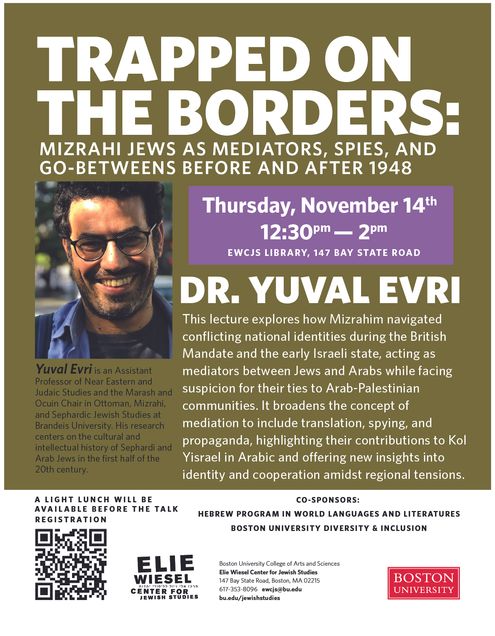 11/14/24: Trapped on the Borders: Mizrahi Jews as Mediators, Spies, and Go-Betweens Before and After 1948
11/14/24: Trapped on the Borders: Mizrahi Jews as Mediators, Spies, and Go-Betweens Before and After 1948
As part of the Israel Studies event series, the Center hosted Yuval Evri, Assistant Professor of Near Eastern and Judaic Studies and the Marash and Ocuin Chair in Ottoman, Mizrahi, and Sephardic Jewish Studies at Brandeis University. His talk explored how Mizrahim navigated conflicting national identities during the British Mandate and the early Israeli state, acting as mediators between Jews and Arabs while facing suspicion for their ties to Arab-Palestinian communities. Dr. Evri broadened the concept of mediation to include translation, spying, and propaganda, highlighting their contributions to Kol Yisrael in Arabic and offering new insights into identity and cooperation amidst regional tensions.
This event was cosponsored by the Hebrew Program and Boston University Diversity & Inclusion.
12/2/24: Whose Promised Land? Israel, Palestine and World Religions with Prof. Ilan Troen
We wrapped up our semester with a lecture from Ilan Troen, professor emeritus and founder of the Centers for Israel Studies at Ben-Gurion University of the Negev and Brandeis University. Prof. Troen explored the complex intersection of religion and politics in Israel and Palestine. Drawing from his new book Israel/Palestine in World Religions: Whose Promised Land? His talk presented a nuanced analysis of how Judaism, Christianity, and Islam each approach questions of legitimacy and sovereignty in the Holy Land, while exploring how these theological perspectives continue to shape contemporary debates. Watch Prof. Troen’s lecture here.
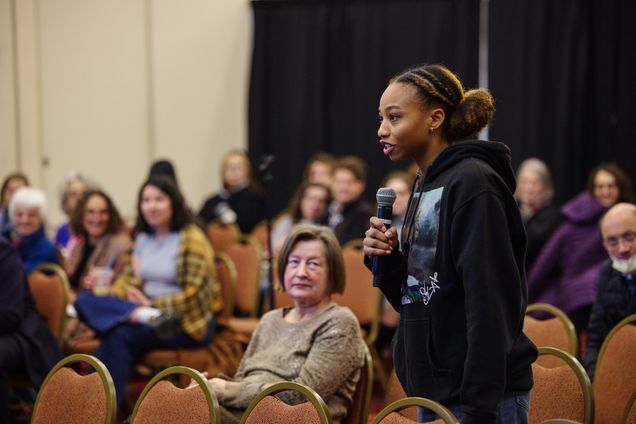
This event was cosponsored by the Frederick S. Pardee School of Global Studies’ Institute on Culture, Religion, and World Affairs (CURA), and the Israel Studies Minor Program at the Elie Wiesel Center.
SPRING EVENTS
1/26/25: How Antisemitism Grows: Lessons from Boston’s 1930’s Nazi Movement
To mark International Holocaust Remembrance Day, Dr. Charles Gallagher, S.J., gave a lecture entitled “How Antisemitism Grows: Lessons from Boston’s 1930’s Nazi Movement.” Author of the acclaimed book The Nazis of Copley Square: The Forgotten Story of the Christian Front, Dr. Gallagher will present his new research on the rise of the Nazi movement in Boston and New York before, during, and after World War II. His talk was followed by a panel discussion with Rob Leikind of AJC NEw England and Prof. Nancy Harrowitz, director of the Elie Wiesel Center, which explored connections between this past and antisemitism today. You can watch Dr. Gallagher’s video here.

This event was co-sponsored by the Jewish Cultural Endowment and AJC New England.
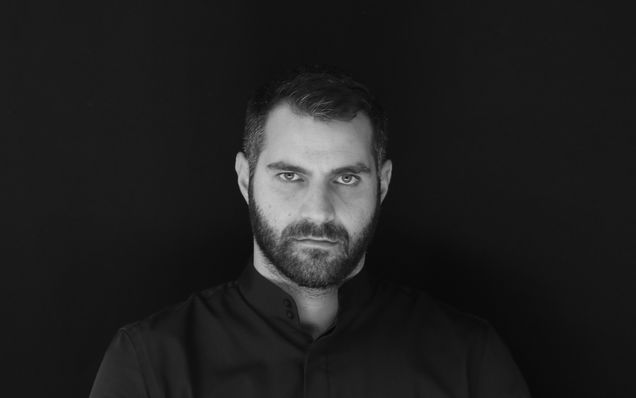 1/30/25: Now and In Other Days: A Tribute to Yehuda Amichai
1/30/25: Now and In Other Days: A Tribute to Yehuda Amichai
The poet Yehuda Amichai revolutionized modern Hebrew poetry and is considered one of the world’s greatest poets of the 20th century. To mark the 100th anniversary of his birth, the Center revisited his iconic poems, which blend the personal with the national and merge Jewish sanctity with secular Israeli identity. This event included readings in Hebrew and English, as well as commentary from Amichai Chasson, an award-winning Israeli poet, writer, and filmmaker.
2/4/25: Reconsidering the Conquests of John Hyrcanus I
The Maccabees Project hosted a workshop on the conquests of John Hyrcanus I as part of their ongoing series, From Rebels to Rulers: The Hasmoneans and Their Kingdom. This hybrid event featured Andrea Berlin, of Boston University; Débora Sandhaus, of Ben Gurion University of the Negev; and Avner Ecker, from the Hebrew University of Jerusalem. These presentations, and the following discussion, explored historical narratives about the the military campaigns of John Hyrcanus I, which sometimes disagree about their timing. Presenters explained the competing archaeological evidence from Mt. Gerezim and Nysa/Scythopolis, against the narrative of Josephus, to consider whether archeological finds can reconstruct the true history of these military campaigns, and how to deal with competing historical records.
 2/13/25: Israel’s Natural World and its Global Importance with Tamara Lotner Lev
2/13/25: Israel’s Natural World and its Global Importance with Tamara Lotner Lev
Professor Tamara Lotner Lev, our Israel Institute Postdoctoral Teaching Fellow, gave a talk highlighting Israel’s natural resources and biodiversity, the current threats to these important wildlife areas, and the movements that are trying to protect them. Prof. Lotner Lev explained the cross-continental importance of these ecosystems and their potential role in fighting global biodiversity loss and climate change. Her experience working with the Israeli Department of Justice and for the Society for the Protection of Nature in Israel allowed her to give unique insights on the different political, economic, and environmental interests that are connected to the land of Israel.
2/13/25: Antisemitism: Then and Now
As part of President Gilliam’s Living Our Values Initiative, the Elie Wiesel Center cosponsored the panel Antisemitism: Then and Now, in collaboration with the Howard Thurman Center and the Pardee School’s Institute on Culture, Religion, & World Affairs (CURA). The panel discussion featured Jonathan Feingold, from the BU School of Law; Kerice Doten-Snitker, of the Santa Fe Institute; and Ron Hassner, of the University of California, Berkeley, with Pardee’s Jeremy Menchik as moderator. The panelists explored the origins of antisemitism, its connection to other kinds of prejudice, and best practices for combatting antisemitism, particularly related to DEI programs. This panel is part of a wider effort across Boston University to build discourse skills and learn how to discuss divisive topics while remaining respectful, nonviolent, and open to learning about others’ perspectives.
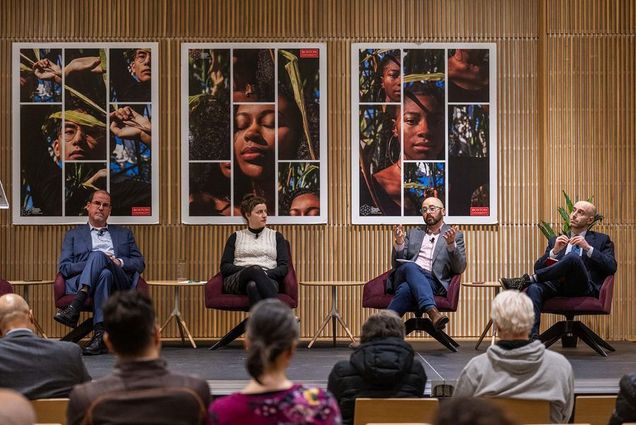
2/24/25: Echoes and Reflection: Ancient and Modern State Building in the Land of Israel
On February 24th, the Center hosted a workshop exploring the phenomenon of state-building in the land of Israel, co-organized by Roi Sabar and Rotem Avneri Meir and moderated by Andrea Berlin. This event was cosponsored by the Department of Religion and Program in Archaeology.
This interdisciplinary event explored the fascinating phenomenon of state formation in the land of Israel across three key historical moments: the Iron Age Kingdom of Israel, the Hasmonean State of the late Hellenistic period, and the modern State of Israel. By weaving together insights from archaeology, ancient and modern history, the lecturers highlighted both the distinct features and enduring patterns of these socio-political entities.
The program included two sessions followed by a keynote address. The first session, devoted to the Iron Age Kingdom of Israel, featured Omer Sergi (Tel Aviv University) and Lauren Monroe (Cornell University). The second session, on the late Hellenistic Hasmonean state, featured Roi Sabar (Boston University) and Rotem Avneri Meir (University of Helsinki). The last session, on the modern state of Israel, featured Derek Penslar (Harvard University).
2/26/25 Gastrofascism and Empire with Simone Cinotto
The program for Holocaust, Genocide, and Human Rights Studies cosponsored a book talk with Simone Cinotto at the end of February. Cinotto, Associate Professor of Contemporary History at the University of Gastronomic Sciences of Pollenzo, Italy, discussed his new book, Gastrofascism and Empire: Food in Italian East Africa, 1935-1941. This hybrid event took place at the Geddes Language Center.
3/29/25 The Fortress(es) of Qeren Naftali with Dr. Roi Sabar
Dr. Roi Sabar gave a lecture on investigating the role of military architecture in state formation process in Northern Israel. Focusing on Qeren Naftali (Khirbet el-Harrawi) near the Israeli-Lebanese border, this talk examined two fortresses: one built by the Hasmoneans and the other planned by the Zionists. By juxtaposing these two structures, Dr. Sabar highlighted the strategic significance of the hill, as well as the distinct strategies employed by each political entity in shaping the landscape.

4/2/25 Yitzhak Rabin Memorial Lecture with Stuart Eizenstat

This year, the Center marked the 20th anniversary of the Yitzhak Rabin Memorial Lecture series founded by Jonathan Krivine, as well as the 30th anniversary of Yitzhak Rabin’s murder. The memorial lecture featured Ambassador Stuart E. Eizenstat, the noted diplomat and author who has served in six US administrations and has been instrumental in advocating for global attention to Holocaust justice issues. Amb. Eizenstat spoke about his book, The Art of Diplomacy: How American Negotiators Reached Historic Agreements That Changed the World. He discussed his analysis of whether, when and how to use American military force to support diplomacy, and related the findings in the book to contemporary challenges in Ukraine and Gaza. The respondent was Timothy Longman, professor of political science and international relations and Associate Dean for Academic Affairs at the Pardee School of Global Studies.
Watch the recording of Amb. Eizenstat’s lecture on our YouTube Channel.
4/9/25 Storytelling and Memory in Post-Genocide Rwanda with Omar Ndizeye
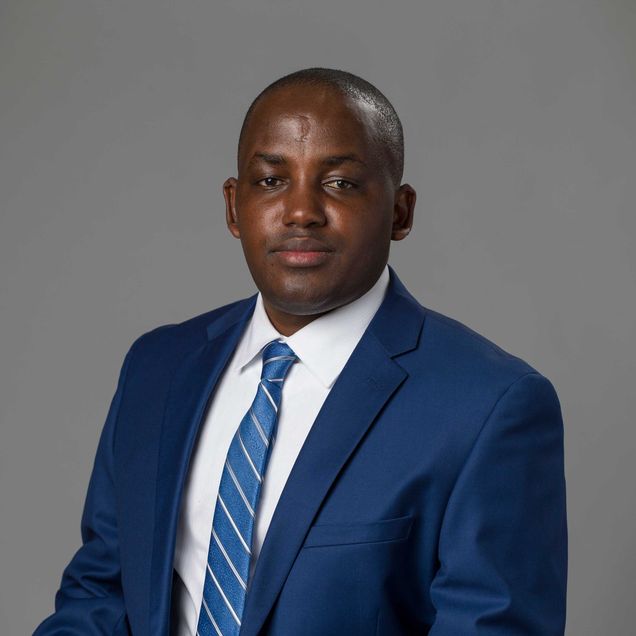 The program in Holocaust, Genocide, and Human Rights Studies worked with the African Studies Center to sponsor a talk on storytelling and memory with Omar Ndizeye. Omar Ndizeye is an educator, author, public speaker, and cultural memory scholar. In 2020, he published a memoir titled Life and Death in Nyamata: Memoir of a Boy in Rwanda’s Darkest Church through Amsterdam Publishers. In his talk, he discussed the importance of storytelling as a form of honoring memory and the necessity of paying attention to “gaps” in existing stories about genocide. Ndizeye also highlighted the importance of educating current and future generations, who have not experienced first-hand violence but continue to deal with the aftermath.
The program in Holocaust, Genocide, and Human Rights Studies worked with the African Studies Center to sponsor a talk on storytelling and memory with Omar Ndizeye. Omar Ndizeye is an educator, author, public speaker, and cultural memory scholar. In 2020, he published a memoir titled Life and Death in Nyamata: Memoir of a Boy in Rwanda’s Darkest Church through Amsterdam Publishers. In his talk, he discussed the importance of storytelling as a form of honoring memory and the necessity of paying attention to “gaps” in existing stories about genocide. Ndizeye also highlighted the importance of educating current and future generations, who have not experienced first-hand violence but continue to deal with the aftermath.
4/10/25 Chiune Siguhara Lecture with Prof. Chiharu Inaba
On April 10, Prof. Chiharu Inaba came to the Elie Wiesel Center to give a talk on his intensive work as a biographer of Chiune Sugihara, the Japanese consular officer who issued transit visas to over 2,000 Jewish residents of Lithuania to leave Europe during the Holocaust period, thereby saving their lives.
